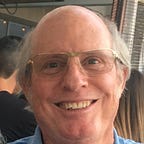The Broadway show, Hamilton, has given the American public a new appreciation for the challenges and complexities of putting together an entirely new kind of government — a full fledged democracy. For George Washington and the others at the Constitutional Convention in in 1787, it was a promising concept, but far from being realized. It was an experiment and it and it had just begun.
George Washington had been tested his entire life. And for the most part he passed those tests, though not all. In a timeline of Washington’s life from the Washington Papers, the Governor of Virginia tasked Major Washington in 1754 to fight on behalf of Virginia’s claim for land in Ohio, also claimed by the French.
It did not take long for Washington to engage the French soldiers in a fight. “Following this skirmish, Washington and his men retreated to the makeshift Fort Necessity, where Washington was soon forced to surrender. This event deeply embarrassed Washington and he resigned his Commission”. He was tested and he learned. In the campaign the following year, he was given command of all Virginian forces after exhibiting courage and leadership.
During the Revolutionary War, Washington’s critics regularly faulted him for not taking on the British troops more directly. While always dealing with the criticism of the Continental Congress and their insufficient funding for the war effort, General Washington fought the war to its successful conclusion in 1783.
George Washington didn’t need a day job though. He was one of the richest men in the Colonies. He was also the 2nd wealthiest U.S. President, surpassed only by President Trump. Washington’s net worth is an estimated $587 million in today’s dollars. Most of this wealth came from land he owned and his slaves who worked on it. This combination of land and slaves was a common and profitable road to wealth in the Colonies. Washington was one such example.
During the Revolutionary War, Washington had been separated from his beloved Mount Vernon plantation and his wife Martha. When he resigned his Commission as Commander of the Continental Army, he was resisting a return to public life. His financial fortunes had waned during the war, and he needed to get back to his farming and land interests.
Yet, he could not say no to the Constitutional Convention in 1787 which elected him President of our new country. There was a rather vague blueprint called the Constitution which had little taxing authority and no democratic model to imitate. He was the head of a government that didn’t really exist. This was another test in front of him — to create a government that today is so familiar to us.
When he assumed the Presidency in 1789, New York City was the capital of this new country. His wife Martha was a long way from Mount Vernon, and she did not enjoy the Cosmopolitan lifestyle. And while the Founding Fathers had a certain disdain for political parties, Hamilton and Jefferson immediately formed their own parties anyway. Washington realized the dangers and forged ahead.
After being nominated by Washington and confirmed by the Senate, Alexander Hamilton became the first Secretary of the Treasury Secretary and Thomas Jefferson the first Secretary of State. This pretty much was the entire federal government. And this was covered relatively well in Hamilton, the Broadway Show.
In the spring of his first year as president, Washington became extremely ill and was on the verge of death. Given the state of medical care at the time, it was a miracle for him and the country that he survived.
Washington is known most for never telling a lie in the Cherry Tree fable, commanding the Revolutionary Army, and being the first President. What’s little known is how much he accomplished in his eight years as president. Not so much what he did specifically, but mostly by modeling democratic leadership and promoting the high ideals of the Declaration of Independence.
How in the world was he able to build the actual fabric of our country — from scratch?
See how in the next installment: Building our democracy from scratch was no small achievement. Even for George Washington.
Ken Grotewiel writes for the publication Our Sacred Democracy on Medium and is a Founding Member of the None of the Above Society.
